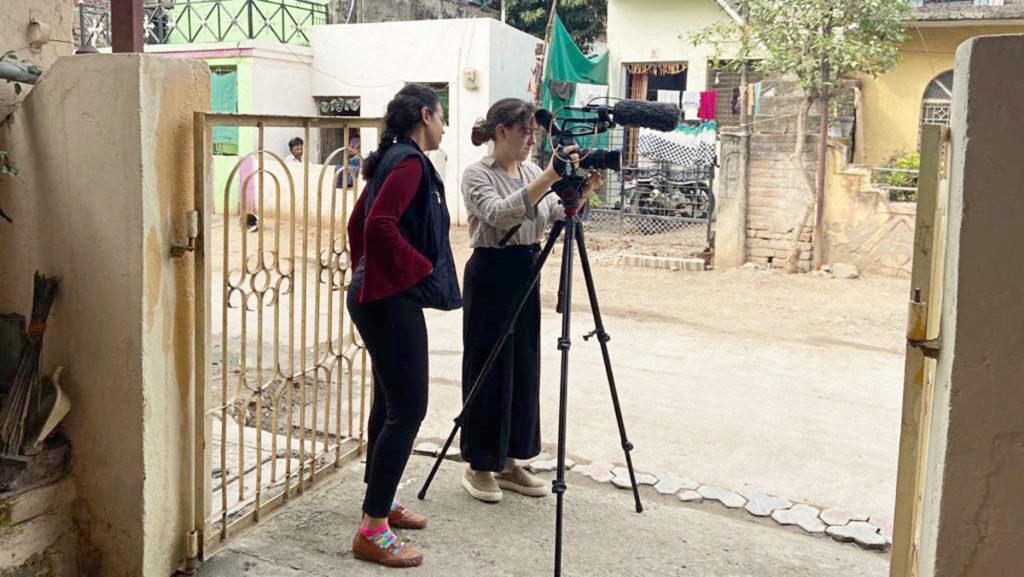Ithaca College senior Alisha Tamarchenko, who is double majoring in documentary studies and production and anthropology, traveled to Pune, India, over winter break to work on a documentary project with the nonprofit eCoexist, which aims to promote coexistence and sustainability.
Staff writer Cody Taylor sat down with Tamarchenko to discuss what the documentary is about, how she was able to travel to India and where viewers can see it screened.
This interview has been edited for length and clarity.
Cody Taylor: What brought you to India over break?
Alisha Tamarchenko: I was working on a documentary project with a social enterprise in Pune, India, for a month. It was an opportunity that just presented itself, and I just felt like I couldn’t not go because it was such an interesting and awesome opportunity.
CT: How did the opportunity present itself?
AT: I started talking to the woman who runs this social enterprise two years ago about this project, but, at the time, I was a sophomore, and there wasn’t necessarily the money for it to happen. Then, we brought the idea back up this past summer, and I applied for a grant through the [Roy H. Park School of Communications] at the Kesh Center. I got the grant, and, at this time, I was a senior and felt like this was something I could do because I had a lot more experience under my belt.
CT: What is the documentary project going to be about?
AT: The documentary project highlights stories of transformation. That transformation is of people’s experience in regards to their relationship to nature and environment. What the documentary project aims to do is inspire viewers to also make those changes in their lives.
CT: Did you know what the documentary was going to be about before you left? If so, has the focus changed?
AT: Because I was only there for a month, which is a short period of time, we did a really thorough preproduction process where we planned everything out, planned all of the interviews out ahead of time. So the subject itself didn’t change, but, because it’s real life, you can’t really predict what people are going to say, so things evolved and things shifted and new ideas emerged as I was there. That’s one of my favorite things about working on documentaries.
CT: What is the nonprofit you worked with?
AT: The organization basically has four campaigns that focus around sustainability. Overall, their goal is to promote sustainability, and their tagline is “creating environmentally sensitive products through socially sensitive means.”
CT: How did your doc studies major help you with this project?
AT: I think that my experience over the last four years at Ithaca has been incredible. I have had the opportunity to work on so many documentary projects and had such an amazing hands-on learning experience through classes, The Ithacan and internships. I definitely came into this feeling very prepared.
CT: How much of the making of this documentary was being done by you?
AT: The team itself on the ground was two people. It was me and Shraddha Potdar. I basically acted as the director, the editor and the photographer, and she was the producer, the assistant director, the translator and the one asking the questions.
CT: How close are you to finishing the documentary, and when can we expect to see it?
AT: I am continuing the project in [Professor] Brad Rappa’s senior thesis class, and I am co-editing it with another senior doc studies major, Alex Klein. I am hoping to have the project done by the end of April, and it will be screened with the other senior thesis projects for the senior thesis screening.
CT: Is there anything you would like to add?
AT: The project [is] partially funded by the Kesh Center, which is a center at Ithaca College, and it’s an incredible opportunity that students should know more about. It basically funds international travel related to projects for faculty and students.
Tamarchenko formerly worked at The Ithacan as multimedia editor.







